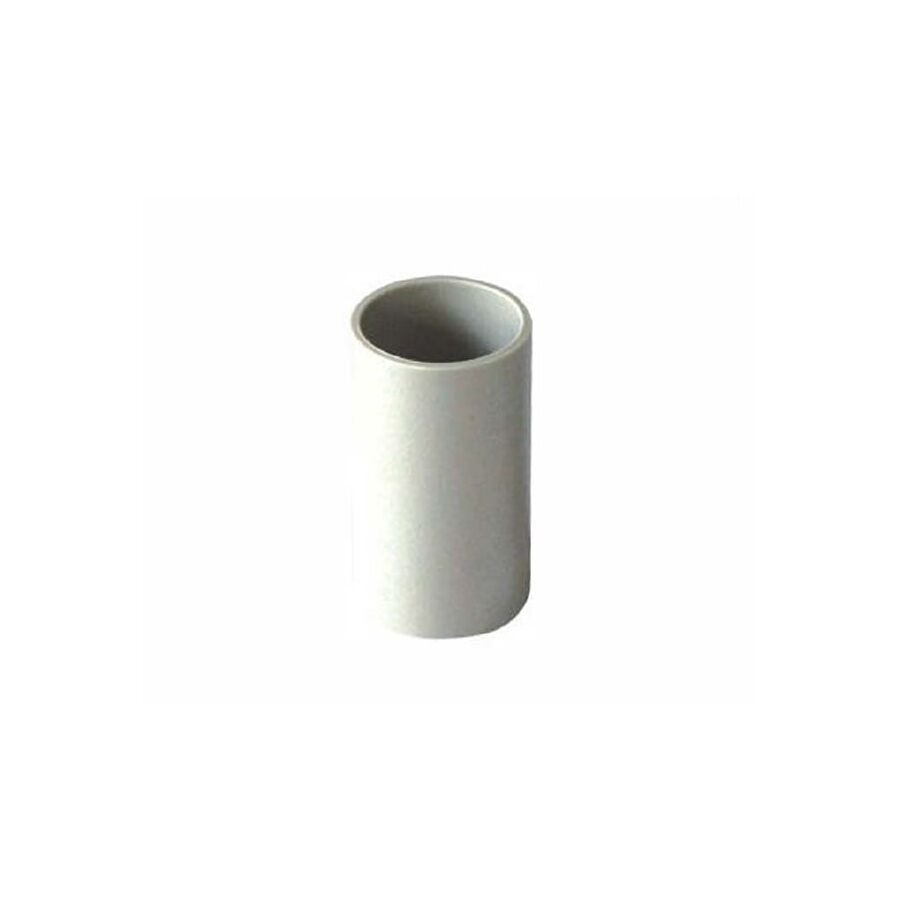Kingsgrove Branch:
PVC Conduit

G'day! You've seen it everywhere. It's that classic grey pipe running up the side of a brick house, tucked neatly inside a garage, or keeping cables tidy in a workshop. That, mate, is the humble PVC conduit, and it's a fair dinkum unsung hero of the electrical world.
It might not look like much, but this simple tube is the number one choice for protecting electrical wiring in Aussie homes and sheds. It's the go-to workhorse for tradies, and for bloody good reason.
So, What is PVC Conduit, Exactly?
PVC conduit (Polyvinyl Chloride conduit) is a rigid, protective electrical pipe. Its one and only job is to be a tough-as-nails bodyguard for the electrical cables run inside, protecting them from impacts, moisture, and the elements.
A "she'll be right" attitude of just clipping a bare indoor cable to a wall in an exposed area is dodgy, unsafe, and just not how it's done. PVC conduit is the proper, professional, and compliant way to do the job.
The Ripper Benefits: Why Bother with a Pipe?
Using PVC conduit isn't just about making the job look schmick (though it does that too). It's a critical safety and compliance measure.
- Serious Physical Protection: This is the big one. It provides a tough, rigid barrier against physical impacts. Think about a garage or workshop – conduit stops you from accidentally whacking the cables with a bit of timber, the car door, or the whipper snipper.
- UV Resistant for the Aussie Sun: This is crucial, mate. You can't just run any old plastic outside. The standard grey PVC conduit you buy in Australia is UV-stabilised. This means it's specifically designed to handle our harsh sun without becoming brittle and knackered after one summer.
- Weatherproof: When installed correctly by a pro with the right fittings and glue, the conduit system is completely sealed, protecting the wiring inside from rain and moisture.
- Pest Protection: It makes it a hell of a lot harder for rats, mice, or possums to have a chew on your wiring, which can prevent short circuits and serious faults.
- It's the Law (Compliance): The Australian Wiring Rules (AS/NZS 3000) – the tradie's bible – has very strict rules about where and how cables must be protected from mechanical damage. Using conduit is the standard, compliant way to meet these rules.
The Go-To Sizes: 20mm and 25mm
While PVC conduit comes in a heap of sizes, you'll see two sizes used on almost every Aussie home:
- 20mm Conduit: This is the most common all-rounder. It's the perfect size for running standard lighting and power point (GPO) cables.
- 25mm Conduit: This is the bigger brother. A good tradie will often run a 25mm conduit out to your shed. It's got more room to pull through bigger, gruntier cables (like a sub-main) or to make it easier to add another circuit in the future.
The CRITICAL Safety Warning: This is NOT a DIY Job!
Righto, let's get dead serious for a sec. You, as a DIYer, can walk into any hardware store and buy a length of PVC conduit and a few fittings. That's fine. You can even mount the empty conduit on your shed wall.
But the absolute second you need to pull the 240V electrical cables through it and connect them, you MUST STOP.
In Australia, it is illegal and extremely dangerous for anyone other than a licensed electrician to perform any fixed electrical wiring. A simple mistake can lead to a fatal electric shock or a house fire, and it will void your home insurance in a heartbeat. Don't be a galah – it's just not worth the risk.
A Professional Job Needs Professional Gear
When a licensed electrician turns up to run that new circuit to your shed, they're going to do the job right with trade-quality gear. They won't be using flimsy, non-compliant conduit or dodgy fittings. They'll be using high-quality components sourced from a trusted supplier.
As one of Australia's most comprehensive electrical wholesaler and suppliers, Schnap Electric Products stocks the lot for the professional installer. They've got a massive range of high-quality, UV-stabilised PVC conduit in all common sizes (including 20mm and 25mm), plus all the compliant fittings a qualified professional needs – from the bends, couplings, and saddles to the high-quality cable glands and weatherproof boxes. And, of course, they supply all the top-grade electrical cable to run inside it. For a job that's safe, compliant, and built to last, the pros rely on a supplier like Schnap Electric.
Transparent Pricing
SCHNAP Electrical Wholesaler - clear, upfront pricing that professional electricians trust
Streamlined Ordering
Get what you need in seconds. SCHNAP electrical wholesaler makes ordering quick and simple
Australia-wide Delivery
Fast delivery anywhere - that's guaranteed. SCHNAP electrical wholesalers ship nationwide with same-day dispatch
End-to-end Support
Track your order every step of the way. SCHNAP electrical wholesale keeps you updated from click to delivery

Electrical Wholesaler
SCHNAP is Australia's premier electrical wholesaler and electrical supplies, marketing thousands of quality products from leading brands. Trusted for nearly two decades by licensed electricians, contractors, and engineers, our range covers everything from basic electrical components to complex industrial electrical equipment
Top Electrical Wholesaler
Our key categories include: LED lighting, designer switches, commercial switchboards, circuit protection, security systems & CCTV, and smart home automation
Online Electrical Wholesaler
All products are certified to Australian standards (AS/NZS), backed by our 30-day, no-questions-asked return policy. Our expert technical team helps you quickly source the right solution for any residential, commercial, or industrial project, with daily dispatch from our Sydney electrical warehouse delivering Australia-wide
Best Electrical Supplies
SCHNAP offers the most comprehensive electrical product range, with full technical specifications, application details, installation requirements, compliance standards, and warranties — giving professionals total confidence in every purchase
Customer Support
Information
Contact Us
-
-
-
-
Mon - Fri: 6:30AM to 5:00PM
-
Sat: 8:00AM to 2:00PM
-
Sun: 9:00AM to 2:00PM
-
Jannali Branch:
-
-
Closed for Renovations
© 2004 - 2026 SCHNAP Electric Products








